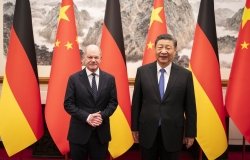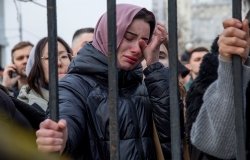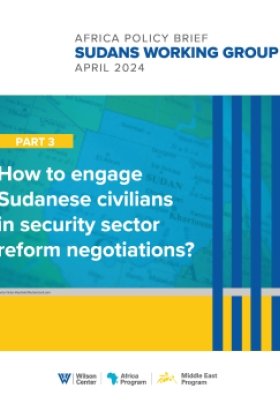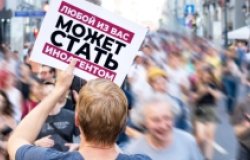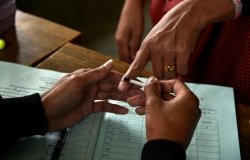Balance of Powers: The President and National Security
"When there is pressing need for the executive branch to act decisively and quickly on security concerns, it's the very time when individual rights can be put at greatest risk," said Scott Matheson, a law professor at the University of Utah and currently a Wilson Center public policy scholar.
Balancing national security and individual liberty in times of crisis presents quite a challenge for a president, whose resolute actions to defend the country have, at times, put civil liberties at risk. Our Constitution invests power in the president to take action to keep us safe while it also stipulates protection of civil liberties, a mandate that sometimes finds those dual aims at odds.
"When there is pressing need for the executive branch to act decisively and quickly on security concerns, it's the very time when individual rights can be put at greatest risk," said Scott Matheson, a law professor at the University of Utah and currently a Wilson Center public policy scholar.
Matheson, a former law dean and U.S. attorney who now writes and teaches about constitutional law, is working on a project that will analyze how constitutional theory addresses the inevitable tensions among the executive branch, national security, and individual liberties.
"The great contribution of American constitutionalism is to combine and accommodate democratic self-government with protection of individual rights," he said. "This combination is tested most in times of crisis."
History is replete with examples of presidents having been put to this test: Lincoln during the Civil War, Wilson during World I, Roosevelt during World War II, Truman during the Korean War. All faced challenges to protect the country and all had to weigh options, sometimes impinging on civil liberties.
But, Matheson pointed out, "Our constitution does not have a state-of-emergency clause that allows the president to suspend constitutional protections during times of crisis." While some constitutions have such a provision, the U.S. Constitution does not, and Matheson considers the absence of such language a strength.
He said the president should balance security and liberty concerns in a way faithful to constitutional norms. "The Constitution gives the chief executive substantial power and he or she has the tools to address these issues [responsibly]."
The courts can provide a critical function in balancing security and liberty during wartime. But, said Matheson, "In foreign policy matters, particularly during crises, the courts have shown a high degree of deference to presidential wishes." Typically, the courts and Congress have acquiesced to presidential power as a crisis unfolds. Congress, he argues, can and should play an active oversight role consistent with its constitutional powers and responsibilities.
"The scope of presidential power and protection of individual liberties has evolved over time. Actions of some past presidents have been judged excessive in hindsight," Matheson said, pointing to speech restrictions during World War I and the Japanese-American internment during World War II. "As a nation, we have learned some important lessons in this area, but every security crisis brings new challenges to constitutional government."
Today, this is a topic of growing concern as the current administration has come under scrutiny for its positions on surveillance, detention, and torture. When the national security threat is chronic, without a perceived end, such as the Cold War or the current war on terror, balancing security and liberty presents a particularly acute challenge.
